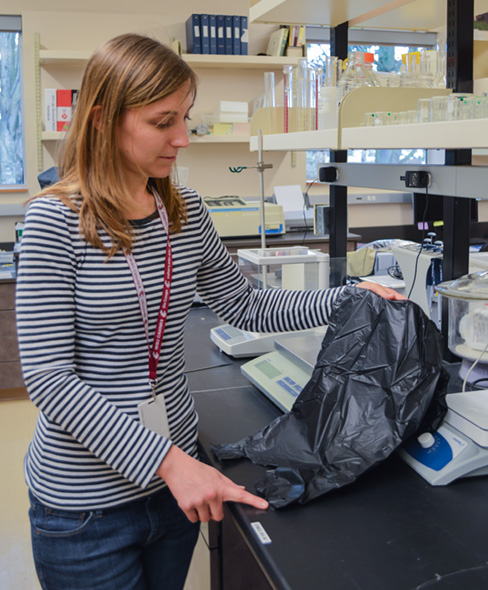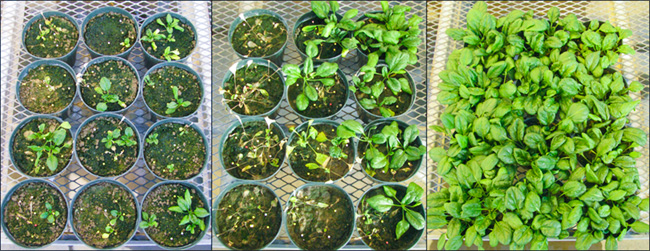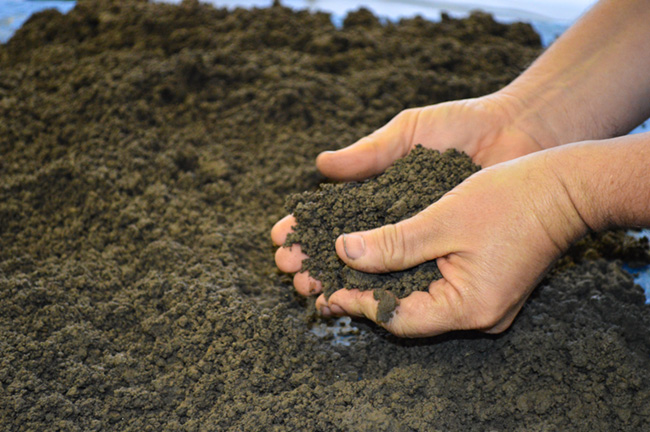
The development of biodegradable mulches has provided some potential eco-friendly benefits to the agriculture industry, but until now there has been no way to determine how these new weed-controlling, moisture-preserving products affect fruit quality.
WSU Mount Vernon Small Fruit Horticulture Program Leader Lisa Wasko DeVetteris about to bridge that information gap as the lead scientist on a newly funded research project.
Thanks to a two-year, $40,000 grant from the university’s College of Agricultural, Human, and Natural Resource Sciences, DeVetter and two WSU colleagues will study how chemical constituents from deteriorating biodegradable mulches migrate to developing fruits. The grant is one of WSU’s eight “Emerging Research Issues” projects designed to utilize innovative approaches to resolve significant issues – including social and economic factors — faced by the state’s agricultural industries.
“The WSU Mount Vernon Research Center has a great history of conducting research with biodegradable mulches (BDMs) in horticultural crop production, much to the credit of the initial work done by our vegetable horticulturist, Dr. Carol Miles, and our vegetable pathologist, Dr. Debra Inglis,” said DeVetter. “But there has been no evaluation of how these products impact fruit quality.”
According to DeVetter, who has been working closely with small fruit growers and researchers in this community for nearly a year now, this project was prompted by some unanswered questions about biodegradable mulch products.
“Specifically, there has been no research examining the potential for chemical constituents in these mulches to move into food crops physically in contact with BDMs during a growing season,” DeVetter said. “Additional questions remain about the application of these products in organic agriculture, which needs critical review. This research is intended to fill in some of the gaps in our knowledge.”
Helping fill those gaps are DeVetter’s fellow researchers on this project: Miles, a professor in the WSU Department of Horticulture; and Shyam Sablani, an associate professor with WSU’s Biological Systems Engineering.
“Dr. Miles will assist with the evaluation of BDM treatments, while Dr. Sablani will assist in measuring chemical migration in strawberry fruits, which we are using as a mode crop for this experiment,” said DeVetter. “A master’s student will complete this project as part of his/her thesis research and will be advised by both Drs. Miles and Sablani.”
The research team’s ultimate goal is to help give growers and producers some more sustainable, environmentally friendly options.
“Biodegradable mulches have potential as a more sustainable method of crop production relative to traditional plasticulture, which is dependent on polymer-based plastics that have significant disposal challenges,” DeVetter said. “We would like to help growers and mulch manufacturers gain confidence, validated through research, that growing crops with BDMs allows for the production of a delicious and safe product for consumers.”

